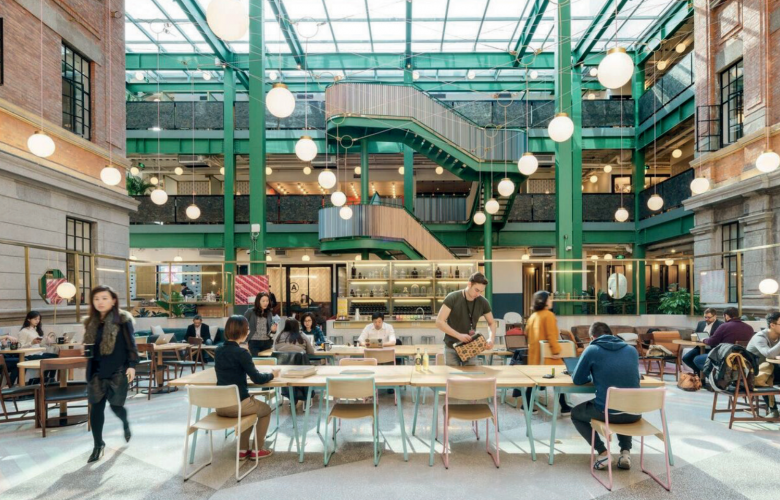Restate investors are becoming increasingly cautious due to concerns over political uncertainty, trade wars and slowing economic growth in key markets across the world, according to the 2019 global edition of Emerging Trends in Real Estate®, an annual report measuring real estate investor sentiment that is published jointly by the Urban Land Institute (ULI) and PwC. The report notes that as investors are attempting to buttress against these headwinds, they are simultaneously overhauling traditional business and valuation models in response to changing consumer demands.
Released earlier on during MIPIM in Cannes, the global Emerging Trends report reflects recent interviews with nearly 30 global real estate leaders, and builds on the responses from thousands of interviewees who informed the findings in the 2019 editions published late last year for North America, Europe and Asia Pacific.
Despite nervousness surrounding the global economic outlook, interviewees suggest that there are still positive signs for real estate in 2019. They believe that the decision by the U.S. Federal Reserve to put interest rate rises on hold, along with lower levels of debt financing and lower property supplies in most markets worldwide (compared to the final stages of the last upcycle), will temper the effects of a slowdown.
The report points to multiple changes beyond traditional economic factors that will continue to affect real estate throughout industry cycles. This includes:
- Accelerated obsolescence of properties, which is a growing concern for asset owners across the globe, against a backdrop of rapid changes in in technology, demography, and social norms, as well as a heightened emphasis on real estate risks related to climate change.
- As new generations become workers and consumers, assets are already being adapted to meet the different demands of these groups, such as flexible working and experience-led hotels and retail. This is requiring owners to rethink how they operate their businesses to drive returns, and is likely to have a longer-term effect on values and performance.
- The rising appeal of alternative real estate such as student housing and senior housing as favored property types among investors and fund managers. This trend represents a fundamental, structural transition for the industry as it seeks to meet the rapidly changing demands of occupiers and consumers.
“Our industry is coming to terms with the challenges and opportunities presented by the structural impact of technological, social and demographic trends on the built environment,” said ULI Chief Executive Officer W. Edward Walter. “Together, these changes, along with climate concerns, will have a lasting impact on real estate development and investment decisions in markets around the globe.”
“The breadth and nature of the global property sector is changing rapidly – including the remarkable emergence of alternative sectors, the importance of the consumer and the growing relevance of operational aspects of real estate. With the current late cycle dynamics, low return environment and changing occupier needs, now more than ever feels like a challenging time for real estate participants – who will really need to work smart as well as hard to find opportunities and create value," said Craig Hughes, PwC Global Head of Real Estate.
The report includes a look at factors specific to Asia, Europe and the United States that have global ramifications:
- In Asia, real estate fundamentals remain robust. While interviewees noted that Chinese cross-border capital flows continue to decline, rising investment activity and strong pricing has offset concerns about dwindling Chinese capital. Seoul has emerged as a hub of commercial investment activity, putting it on par with Tokyo. Emerging markets such as Vietnam and India are beginning to attract attention, and, due to low vacancy rates and good future supply, alternative real estate such a self-storage, data centers, student accommodation and senior housing are starting to become more attractive to investors across the region.
- European investors are increasingly seeing an uncertain economic outlook, a reversal of optimism that was expressed in 2018. Slowing growth in France and Germany, Italy entering a recession, and the looming specter of Brexit has investors worried about the future. A strong decline in consumer confidence is driving down economic growth, which is also reducing the risk of interest rate rises on the continent. Interviewees were heartened by the amount of capital still flowing into European real estate, though they warn that the investment product available is not meeting the demand as investors become more disciplined and cautious.
- The U.S. is seeing real estate investment increase even as the threat of a possible economic slowdown looms in 2020. The country has benefited from capital flows out of Canada, France, Germany and Singapore. Should a recession occur, interviewees believe it will be a brief slump followed by a quick rebound. While sentiment regarding the U.S. is generally positive, interviewees indicated concerns that prolonged trade tensions between the U.S. and China could lead to companies reducing their expansion plans and to a decline in gross domestic product growth.
Click here to download the Global Emerging Trends report
For more information, email Calvin Choi from the BlueCurrent Group, Hong Kong or Shaun Soh from PwC Hong Kong via the contact details below.
Similar to this:
Non-retail services are helping to fill up retail floors - JLL
Singapore - record property auction listings in 2018 amid slower sales
Changing Dynamics: Implications of new occupier profiles for property owners









